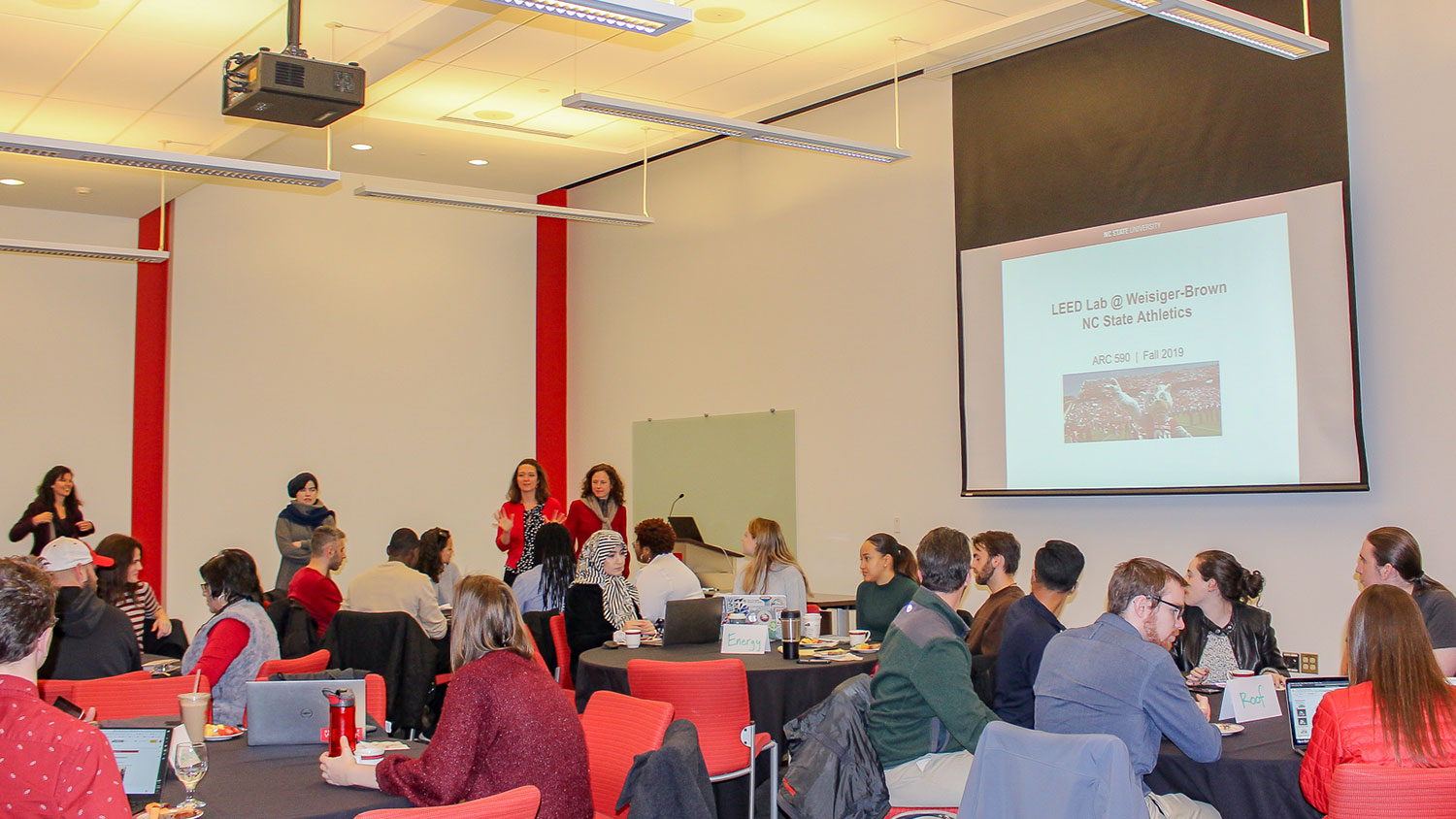Students Create Sustainability Plan For Athletic Facility

After a semester of work, 25 students recently presented their recommendations on how to improve environmental sustainability at NC State’s Weisiger-Brown Athletic Facility.
Students in LEED Lab, an interdisciplinary course offered every fall semester, learned what it takes for an existing building to qualify for Leadership in Energy and Environmental Design (LEED) certification. The certification is administered by the U.S. Green Building Council and requires extensive documentation.
“I walk past LEED-certified buildings on campus every day and this [course] showed me how the certification process takes all building operations into consideration,” said Tori Vick, a senior in the College of Design.
Students in the course were tasked with evaluating Weisiger-Brown Athletic Facility’s sustainability performance and identifying ways to decrease environmental impact and costs. To achieve the LEED operations and maintenance certification, a building earns points for efforts in areas such as transportation, water, energy, materials, waste reduction and indoor environmental quality.
“Not only are the architecture, engineering, and environmental science students learning from one another, but they’re also learning what it means to have a sustainable operational building,” said course co-instructor Liz Bowen. “We don’t build for today, we build for the future.”
Opened in 1982, Weisiger-Brown Athletic Facility is the home of NC State men’s and women’s soccer teams, wrestling, cross country and track and field squads, and swimming and diving.
At the course’s final presentation, students shared their results and recommendations, such as incorporating composting into building operations.
“Adding a composting container to the building helps reduce environmental impact by diverting waste and could become a part of the closed loop [waste management at] NC State,” said Conor Murphy, a senior in the College of Engineering.
One of the goals of the course is to encourage interdisciplinary teamwork. Students worked in groups representing several different colleges including the College of Natural Resources, College of Design and College of Engineering. By incorporating different backgrounds into each group, students leveraged different perspectives to their benefit.
“It changes the perspective of the architect to think of how maintenance and operations of the building will continue even after it’s built,” said Marco-Dane Raymond, a senior in the Poole College of Management and College of Natural Resources.
Ultimately, LEED Lab prepares students for career success, qualifies them to take the LEED Accredited Professional certification exam and provides real-world project experience.
“In this course, diversity and team building is a primary focus,” said course co-instructor Traci Rose Rider. “We wanted our students to have meaningful interdisciplinary interactions that simulate real-world building design and construction.”
This is the sixth year NC State has offered LEED Lab and the first time an athletic building has been the focus. Recently, Talley Student Union — because of its previous LEED Lab course — earned designation as a Marquee Green Building in the Sustainable Business Awards for USGBC North and South Carolina.